25/03/2023
Velence
Hungary
Hungary
25
total
participants
participants
Causes covered by this activity
Type of activity
Goal of the Activity
The aim of the local dialogue was to gather qualitative information from participating youth about the barriers that young people face to accessing international opportunities and exercising their rights as mobile young people.
Description
We had 21 participants including 17 local students and 4 international exchange students.
Through open discussions (facilitated by 4 ESN volunteers) in smaller groups we were trying to gather information from university students about these key topics:
- Main motivations to go abroad for learning purposes (study, traineeship, volunteering)?
- Awareness about EU opportunities such as Erasmus, European Solidarity Corps and others.
- Challenges and barriers to participating in these opportunities: why so many young people do not access them? How can these barriers be overcome?
- Awareness about the rights of mobile and non-mobile young people as EU citizens.
- Impact of mobility and civic engagement: does mobility make more active citizens?
Outcomes
All of the participants agreed that international mobility programs are a great -and very importatnt- opportunity to get to know other cultures, practice language and gain valuable experience.
- Regarding the mobility opportunities offered by the EU, most people mentioned Erasmus+ and Erasmus Mundus.
- As for non-EU funded exchange programs CEEPUS was the most commonly known and they also mentioned the new Turing Scheme in the UK. Some of the involved international students were studying in Hungary with the Stipendium Hungaricum scholarship.
- We asked the students about the biggest obstacles for participating in an international mobilty and they always mentioned the financial aspect first. In many cities it is expensive and very difficult to find accommodation especially for short-term (6-12 month). The second problem that came up was that they feared going on an exchange will prolong their studies by 1-2 semesters. Some people also mentioned that while they can converse in English, they are not sure if their knowledge is good enough to study in an other country.
- Since most participants have traveled withint the EU, the first thing that came to their mind regarding their rights as EU citizens was the freedom of movement. They also liked that they can freely work in any EU country they choose.
- There was a consensus between the students who already participated in international mobilty programs, that they became more active in their local communities after the experience.
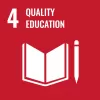
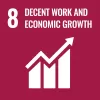
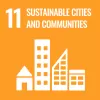
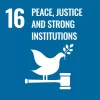
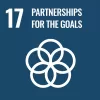
By organising this activity, the organisers want to contribute to the following Sustainable Development Goals
Objectives
Foster Active Citizenship & Volunteering
Foster Europe and European Citizenship
Youth Rights and Democratic Participation
This activity is part of the project:
Erasmus Generation in Action (EGiA)This activity was organised by:
